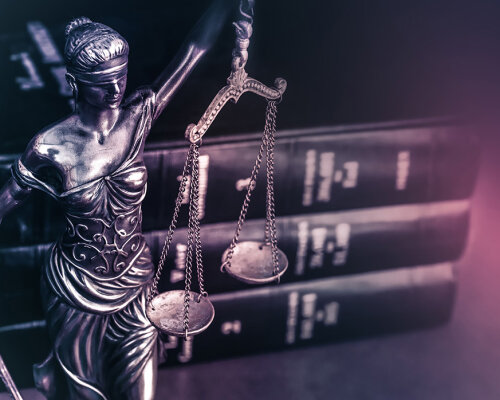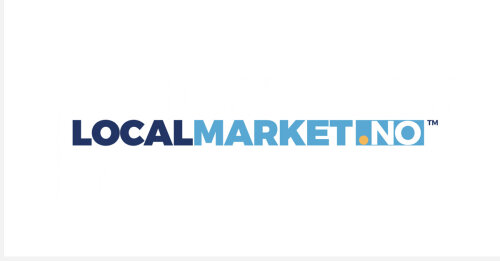Best Marine Insurance Lawyers in Norway
Share your needs with us, get contacted by law firms.
Free. Takes 2 min.
Or refine your search by selecting a city:
List of the best lawyers in Norway
About Marine Insurance Law in Norway
Marine insurance in Norway is a critical component of the maritime sector, providing vital risk management tools for shipowners, charterers, cargo owners, and other stakeholders involved in maritime operations. Norway’s strong maritime tradition and commercial shipping activity significantly contribute to this sector. Marine insurance covers a range of risks, including damage to vessels, cargo losses, and third-party liabilities. The legislative framework governing marine insurance is rooted in both national law and international conventions, ensuring comprehensive coverage for various maritime risks.
Why You May Need a Lawyer
The complexities of marine insurance often necessitate professional legal assistance to navigate potential legal hurdles. Common situations where legal help might be required include:
- Disputes regarding insurance claims due to loss or damage of vessels or cargo.
- Interpretation of policy terms and conditions that might be ambiguous or disputed.
- Handling liability issues arising from accidents or environmental damages.
- Negotiating settlements in large claims where the stakes are significant.
- Ensuring compliance with international conventions and Norwegian maritime laws.
Legal expertise can provide peace of mind, ensuring that your rights and interests are well protected throughout these processes.
Local Laws Overview
Norway's marine insurance laws are underpinned by a blend of national regulations and international conventions. Some of the key aspects include:
- The Norwegian Marine Insurance Plan (NMIP): This plan serves as a comprehensive framework outlining the conditions for marine insurance policies. It is internationally recognized and frequently used as a reference in marine insurance agreements.
- International Conventions: Norway is a party to several maritime conventions, including the Hague-Visby Rules, which govern the international carriage of goods by sea.
- Liability and Compensation: Local laws stipulate the liabilities and compensation protocols for shipping incidents, ensuring a fair resolution for all parties involved.
Frequently Asked Questions
What is marine insurance?
Marine insurance provides coverage against perils associated with maritime activities, including loss or damage to ships, cargo, terminals, and any transport involved in transferring goods between points of origin and final destination.
Who needs marine insurance?
Marine insurance is essential for shipowners, cargo owners, freight forwarders, charterers, and anyone involved with the transportation and logistics of goods over waterways.
How is a marine insurance claim processed?
Claim processing involves notifying the insurer of the incident, submitting necessary documentation to substantiate the claim, and possibly an investigation to determine liability and quantum of the claim.
What are 'perils of the sea'?
Perils of the sea refer to extraordinary forces of nature that threaten the safety of a vessel, such as severe storms, waves, or icebergs.
Is piracy covered under marine insurance?
Yes, piracy is typically covered under marine insurance policies as it is considered a peril of the sea.
What are the types of marine insurance policies available?
Common types of marine insurance include hull insurance, cargo insurance, and protection & indemnity insurance, among others.
What is the role of the Norwegian Marine Insurance Plan?
The NMIP acts as a standard contract structure for marine insurance policies. It provides a clear framework for the rights and obligations of both parties involved in the insurance contract.
Are personal belongings covered under marine cargo insurance?
Typically, cargo insurance protects commercial goods. Personal effects might need separate arrangements or extensions, depending on the policy.
Is there a time limit for filing a claim?
Yes, most policies stipulate a time limit for declaring claims, often within one year of the incident. It's crucial to review the specific policy terms for accurate information.
Can I negotiate the terms of a marine insurance policy?
Yes, policyholders can negotiate terms. It is advisable to seek legal counsel or professional advice to ensure favorable conditions aligned with your risk management needs.
Additional Resources
For further information on marine insurance in Norway, consider reaching out to the following organizations and resources:
- Norwegian Maritime Authority: Offers guidance and regulatory information on maritime safety and regulations.
- The Norwegian Shipowners’ Association: Provides resources and support for shipowners operating within Norway’s jurisdiction.
- Insurance Regulatory Authorities: Contact them for oversight and regulatory guidelines on marine insurance policies.
- Norwegian Marine Insurance Plan documentation: Reference this to understand detailed policy terms and applications.
Next Steps
If you need legal assistance with marine insurance in Norway, consider the following steps:
- Consult with a specialized marine insurance lawyer who understands both Norwegian and international maritime laws.
- Gather all documentation related to your case, including insurance policies, correspondence, and incident reports.
- Contact a local maritime authority or insurance regulator for advice and to verify the credibility of your insurer.
- Consider mediation or arbitration services in case of disputes, which can offer quicker resolution outside of court.
- Keep abreast of any changes in laws and regulations in the marine insurance sector that might affect your position.
Ultimately, engaging with qualified professionals will ensure you effectively navigate the complexities of marine insurance law in Norway.
Lawzana helps you find the best lawyers and law firms in Norway through a curated and pre-screened list of qualified legal professionals. Our platform offers rankings and detailed profiles of attorneys and law firms, allowing you to compare based on practice areas, including Marine Insurance, experience, and client feedback.
Each profile includes a description of the firm's areas of practice, client reviews, team members and partners, year of establishment, spoken languages, office locations, contact information, social media presence, and any published articles or resources. Most firms on our platform speak English and are experienced in both local and international legal matters.
Get a quote from top-rated law firms in Norway — quickly, securely, and without unnecessary hassle.
Disclaimer:
The information provided on this page is for general informational purposes only and does not constitute legal advice. While we strive to ensure the accuracy and relevance of the content, legal information may change over time, and interpretations of the law can vary. You should always consult with a qualified legal professional for advice specific to your situation.
We disclaim all liability for actions taken or not taken based on the content of this page. If you believe any information is incorrect or outdated, please contact us, and we will review and update it where appropriate.
Browse marine insurance law firms by city in Norway
Refine your search by selecting a city.
















